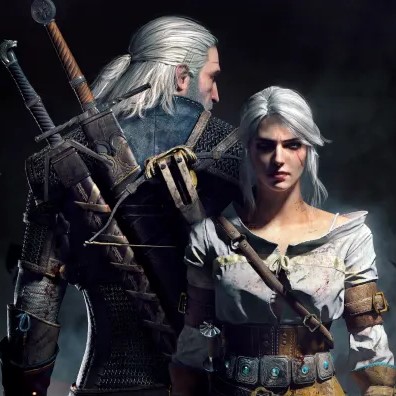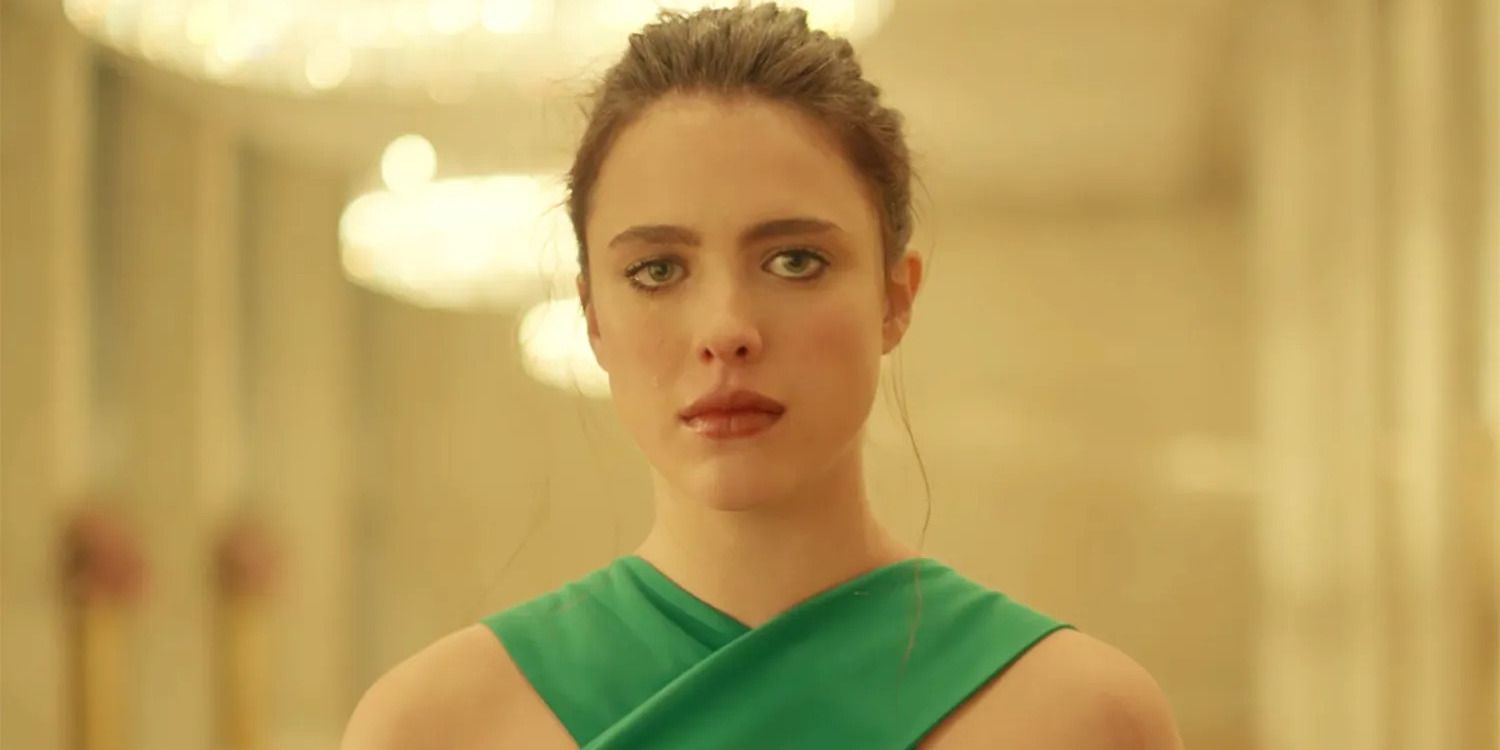I remember how little time it took—just a few hours, really—for me to realize that The Witcher 3 was treating quests differently than any other RPG I'd played. In so many games, particularly ones released before The Witcher 3 in 2015, there's a clear distinction in complexity and production value between the main quest and sidequests.
Even when veering off the critical path involved something more complicated than killing a dozen enemies and bringing them back to a nameless villager, the very best sidequests in the RPGs I'd played from Bethesda and Bioware and Square Enix rarely measured up to the stories CD Projekt Red was working into its least essential missions. Romantic tragedies in random Velen villages; murder mysteries in the heart of Novigrad; contracts that end up leading to haunted houses or Geralt on trial in front of a tribunal of monsters.
Some of the quests that The Witcher 3 casually offers on a notice board in some muddy shithole town rival the pinnacle of other RPGs' storytelling. The thing most of these quests have in common is a critical choice of some kind: not a choice that influences the ending, or gives Geralt a few points on a "good" or "evil" progress bar, as Mass Effect had been doing in the years prior.
The Witcher 3's writing has been praised many times over the last decade for being "morally gray," but all that really means is that there isn't always (or maybe even ever) a right or wrong decision. It's not up to us to define who Geralt is—he's already the Butcher of Blaviken, Yennefer's on-off lover, Ciri's adoptive father. But we do get to color him in, all of his nuance flowing from hundreds of minor dialogue options and paths chosen.
Is he a stern or gentle father? Does he fiercely stand up for persecuted dwarves and elves or avert his eyes? What regrets does he carry with him from the decisions he made when the outcomes were bad and worse?
The Witcher 3's greatest trick was making these choices feel like they mattered to Geralt, and to us, without anything so obvious as a branching path or a pop-up saying "Geralt will remember this." So it felt only right that as we celebrate The Witcher 3's 10th anniversary to look back at some of the hard decisions that have stuck with me.
At the time I struggled with every one of these, but with hindsight I'm now prepared to tell you the Obviously and Objectively Correct decision in each scene. (Forget all that morally grey stuff from a second ago! This is how you mold the One True Geralt).
Committing to Yennefer or breaking her heart in The Last Wish
Objectively correct choice: "I still love you, too."
What makes it agonizing? The Witcher 1 & 2 building up Geralt's relationship with Triss.
What choices are harder than matters of the heart? The Last Wish is one of The Witcher 3's best quests, unfurling the long and stormy history of Geralt and Yennefer's romance from the Witcher novels. They don't know if their bond is due to a wish Geralt made to a powerful djinn, or if they're truly in love—and this quest lets you decide one way or the other. It's one of the most poignant scenes in the game, elegantly staged with Yen and Geralt sitting on the edge of a ship that's been magically transported to the top of a mountain, pouring out their hearts with just the wind between them.
If you only know Geralt's story from the games, you've likely romanced Triss Merigold before this point. The first time I played The Witcher 3 I broke up with Yen at the end of The Last Wish, choosing the option "Sorry, but I don't want to be with you anymore." But the more history you have with these characters, the more likely you are to see Geralt, Yen and Ciri as a messy but fiercely loving family unit who really do belong together. Committing to Yen and proving that the djinn never really controlled your destinies is the lore-appropriate storybook outcome… but if your Witcher canon begins and ends with the games, think about your past with Triss before you make the call.
Other outcomes: Yen confesses her love, but Geralt tells her the "magic's gone," ending the possibility of future romance.
Throwing the baby in the oven in Possession
Objectively correct choice: "Put the baby in the oven."
What makes it agonizing? I mean, you're throwing a baby in an oven.
Udalryk bursts into the room and demands you *not* throw his baby into a blistering hot oven
The Witcher 3 doesn't often force you to make truly snap decisions, and this is one of the hardest—or at least most momentarily panic-inducing—in the game. In the quest Possession, Geralt is trying to break a curse by tricking a specter called a Hym. Cerys, the fierce daughter of the Craite clan, hands you the kidnapped baby of Skellige jarl Udalryk, who's under the curse, just before the jarl bursts into the room and demands you not throw his baby into a blistering hot oven. This whole quest hinges on whether you trust Cerys. She wouldn't really have you roast a baby to a crisp, right?
Turns out, no—the trick being played is on Geralt, and his fresh guilt attracts the Hym to latch onto the witcher instead of Udalryk. When Cerys reveals the baby's all fine thanks to a bit of sleight of hand, the curse is broken and no babies were burned.
Other outcomes: Though you don't know it in the moment, this quest will have a happy ending either way. You can choose to fight the Hym instead, but you'll disappoint Cerys and receive a fist to the face from Udalryk for your caution.

The Witcher 4: What we know about Ciri's story
Witcher 3 mods: Good hunting
The Witcher books: Where to start
Witcher 3 console commands: Cheat death
The Witcher season 4: Hemsworth's debut
Deciding Anna's fate in Return to Crookback Bog
Objectively correct choice: Killing the spirit in the Whispering Hillock
What makes it agonizing? There's no happy outcome for the Bloody Baron's family, just sad and sadder.
The best questline in The Witcher 3, and one of the finest in RPGs, period, is the bleak story of the Bloody Baron, who seems like a one-note bastard of a side character until you discover the tragic family story lurking behind his anger. The Baron's quests, Family Matters and Return to Crookback Bog, embody The Witcher 3's approach to hard decisions, making it clear that sometimes trying to do the right thing can still lead to the wrong outcome, and sometimes there's no right choice at all.
The "best" case scenario leaves the Baron's wife Anna alive but out of her mind. To arrive at that result, you'll have had to convince the Baron to bury their miscarried child, a botchling, and completed the Whispering Hillock sidequest, killing the spirit trapped there. As a result you're dooming several orphans the spirit offers to save from the bog Crones, with their deaths driving Anna mad. You'll last see the Baron and Anna setting off to visit a healer, with the Baron holding onto a faint chance of restoring her to her former self.
Other outcomes: Anna can be cursed by the Crones and turned into a hag. Even if you break the curse and cure her, she'll die as a result, leading the Baron to hang himself.
Letting Triss be tortured in Count Reuven's Treasure
Objectively correct choice: Kill 'em all.
What makes it agonizing? Several minutes of Triss screaming as they rip her fingernails out.
The quest to track down Dandelion and Ciri includes a detour to find Dijkstra's stolen treasure, culminating in a showdown with some very nasty witch hunters. Triss offers to help: You'll pretend to turn her over as a prisoner to sneak into the heavily guarded base. If you do, though, the scumbags are so eager to torture Triss that they'll get right to it while you're trying to play it cool and get some info out of their leader Caleb Menge.
Even though it was Triss's idea, it just ain't right letting her get tortured by dudes who so thoroughly deserve killing. As soon as they try to throw Triss in a cell, drop the act.
Other outcomes: If you stick out all the dialogue with Menge, Triss will kill him herself. It's pretty badass, but you should rightly feel bad that things got that far.
Taking or leaving Iris Von Everec's violet rose
Objectively correct choice: Sorry lady, gimme that rose.
What makes it agonizing: What happens to us after we die? By what right do you take the last thing this woman can call her own?
You're tasked with acquiring the violet rose Olgeird left her with, but taking it will consign her to a true, final death
If you've ever said something you'd later regret to a loved one, the Scenes From a Marriage quest in Hearts of Stone will smack you in the chest like a sack of bricks. Dashing Olgeird's demon-summoning and faustian bargains were definitely his main issue, but the quiet, little ways he hurt his wife before the shit really hit the fan are what sticks with me. Put your damn book down and listen to her, man!
Iris von Everec now lives in a haunted purgatory, reliving the dissolution of her marriage in a bizarro version of their family home, with the titular scenes from the marriage showing all the ways Olgeird hurt her. You're tasked with acquiring the violet rose Olgeird left her with, but taking it will consign her to a true, final death.
Taking one more thing from a woman who's had everything ripped away from her feels utterly vile, but the alternative is leaving her in this pocket dimension to stew on all the ways she was wronged, with no hope for closure or resolution. Pull off the bandaid and take the flower, I say. — Ted Litchfield
Other outcomes: Iris paints a picture of herself holding the rose that Olgeird accepts instead of the real thing. Iris is trapped in a hell dimension of her own memories for, presumably, eternity.
Shaving Geralt's beard or keeping it
Objectively correct choice: Daddy Geralt, of course.
What makes it agonizing: Change is scary!
Finally we arrive at the ultimate crisis point in The Witcher 3: a choice that will send ripples throughout the entire Northern Kingdoms. When you visit a barber in The Witcher 3, you're given the choice between a range of hairstyles and beard options, including taking Geralt back to his clean shaven Witcher 1 and 2 days.
If you played hundreds of hours of those RPGs before The Witcher 3, seeing Geralt with a beard may be jarring. He looks older. Don't you long for the clean shaven Geralt? Isn't that what he should look like? I understand that instinct, but it's wrong. Wrong wrong wrong. The Witcher 3 is the end of Geralt's journey; it's about him embracing fatherhood and putting Ciri's needs above his own. And it's also about him looking so 10 out of 10 handsome with that beard that even Santa Claus and Hayao Miyazaki would be jealous. There's only one proper outcome: letting go of the past and embracing the dad beard.
Other outcomes: You can give Geralt a ponytail, shaved temples and "friendly mutton chops" if you're an absolute freak with no respect for the dignity of our favorite monster hunter.













 Bengali (Bangladesh) ·
Bengali (Bangladesh) ·  English (United States) ·
English (United States) ·